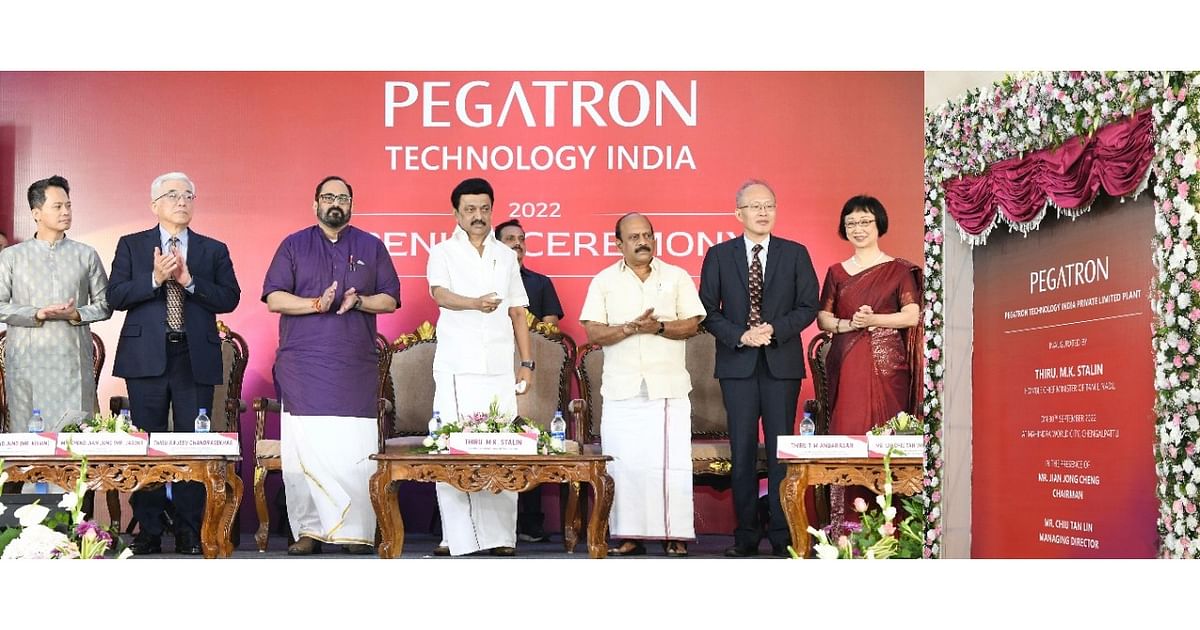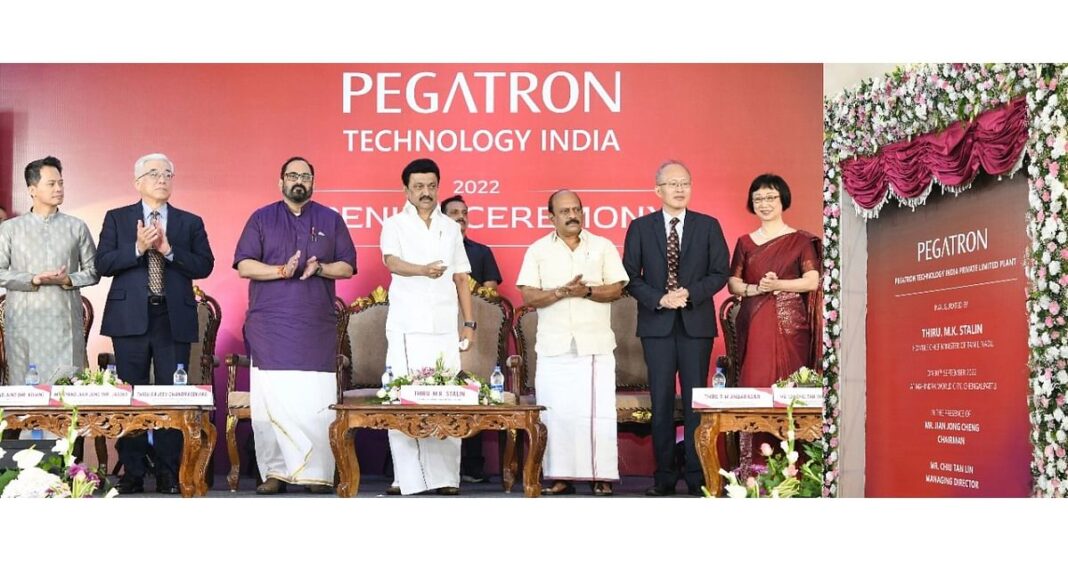In a move that has been closely watched by investors and tech enthusiasts alike, Apple’s plans for shifting iPhone production to India have been a topic of intense speculation. Recent reports had hinted at a significant overhaul in the company’s manufacturing strategy, potentially paving the way for a major shift in the global supply chain. However, according to a reliable source cited by Deccan Herald, it appears that Apple’s iPhone production plans for India remain largely unchanged. This development has significant implications for the Indian manufacturing sector, which has been vying for a larger share of the global electronics market. As the tech giant continues to navigate the complexities of global production, India’s prospects as a prime manufacturing hub have been put to the test once again. In this article, we’ll explore the latest updates on Apple’s iPhone production plans and what they mean for India’s future as a manufacturing powerhouse.
Apple India Manufacturing: A Closer Look at iPhone Production Shift Plans

As Pegatron Technology India ramps up iPhone production in India, Unionjournalism takes a closer look at the significance of this move and its implications for Apple’s global strategy.
Pegatron’s Expansion Plans

In a strategic move to boost iPhone production in India, Pegatron Technology India has launched its production within 18 months of signing a Memorandum of Understanding (MoU) with the Tamil Nadu government in February 2021.
This swift move is seen as a response to the anticipated new tariffs imposed by the US, which would have increased the costs of Apple’s products. By transporting iPhones and other products from India to the US, Apple aims to shield consumers from increased costs and protect demand.
This move is significant not only for Apple but also for India’s growing role as a manufacturing hub. With Pegatron’s expansion plans, India is poised to become a major production center for Apple’s global supply chain.
Competitive Advantage

India’s favorable business environment and government support have contributed significantly to Pegatron’s expansion plans. The country’s relaxed labor laws and competitive labor costs have made it an attractive destination for manufacturers.
Moreover, the Indian government’s “Make in India” initiative has provided incentives for companies like Pegatron to set up shop in the country. The initiative aims to promote India as a global manufacturing hub, and Pegatron’s expansion plans are a testament to its success.
This competitive advantage is likely to benefit Apple in the long run, as it can leverage India’s favorable business environment to strengthen its position in the market.
Challenges and Opportunities

While Pegatron’s expansion plans are a positive development for Apple, there are potential challenges that the company may face in scaling up production in India.
One of the main challenges is the need for skilled labor. With a large workforce, India has the potential to provide the necessary manpower, but the quality of labor is a concern. To address this, Pegatron will need to invest in training programs to upskill the local workforce.
Another challenge is the need for infrastructure development. While the Indian government has made significant investments in infrastructure, there is still a need for further development to support large-scale manufacturing.
Despite these challenges, Apple can leverage these opportunities to strengthen its position in the market. By investing in training programs and infrastructure development, Apple can create a skilled workforce and a robust supply chain that can support its global operations.
India’s Growing Role in Apple’s Global Supply Chain

As India’s manufacturing sector continues to grow, Apple’s partners are taking note. Foxconn, which employs thousands of women at its iPhone factory at Sriperumbudur, near Chennai, has outsourced recruitment to third-party vendors.
Foxconn’s Recruitment Strategy
Foxconn’s recruitment strategy involves outsourcing recruitment to third-party vendors. These agents scout for and screen candidates, who are ultimately interviewed and selected by Foxconn.
This approach has implications for workers, recruiters, and manufacturers. For workers, it provides an opportunity to work with a leading global brand like Apple. For Foxconn, it provides access to a large pool of skilled labor.
However, this approach also raises concerns about labor practices. With third-party vendors handling recruitment, there is a risk of exploitation of workers. Apple and its partners will need to ensure that they comply with labor laws and maintain fair labor practices.
Labor Practices and Regulations
India’s labor laws and regulations governing manufacturing are designed to protect workers’ rights and promote fair labor practices.
Under Indian labor laws, manufacturers are required to provide safe working conditions, fair wages, and social security benefits to workers. Manufacturers are also required to comply with regulations on working hours, leave, and labor disputes.
Apple and its partners will need to ensure that they navigate these regulations to maintain compliance. This requires investing in training programs, implementing fair labor practices, and ensuring that workers are protected from exploitation.
Talent Acquisition and Retention
In the Indian manufacturing sector, skilled workers are the backbone of any organization. Apple’s growth plans in India are contingent upon its ability to attract and retain top talent. The company must address the challenge of talent acquisition and retention to sustain its growth momentum.
According to industry experts, the Indian manufacturing sector faces a significant shortage of skilled workers. This shortage can be attributed to the lack of adequate training and development programs, and the inability of organizations to offer competitive salaries and benefits.
Apple can address this challenge by investing in training and development programs that cater to the specific needs of its employees. The company can also focus on offering competitive salaries and benefits, which will not only attract skilled workers but also retain them in the long run.
Furthermore, Apple can adopt innovative recruitment strategies such as partnering with local educational institutions to develop a pipeline of skilled workers. The company can also focus on creating a positive employer brand that showcases its commitment to employee development and growth.
Strategic Shifts and Market Implications
Apple’s Pricing Strategy
Apple’s decision to transport iPhones from India to the US is a strategic move aimed at maintaining current pricing. This move is a response to the new tariffs imposed by the US government. By transporting iPhones from India, Apple can shield consumers from increased costs and protect demand.
This strategic move has significant implications for tariffs and the global market. The move is likely to increase the cost of production, which may impact Apple’s profit margins. However, the company’s decision to absorb the increased cost of production is a testament to its commitment to maintaining its market share.
The move is likely to have a ripple effect on the global market, with other manufacturers likely to follow suit. The increase in the cost of production may lead to a decrease in demand, which may impact the global economy.
Supply Chain Resilience
Apple’s supply chain is resilient in the face of tariffs and trade tensions. The company’s strategic moves contribute to its overall supply chain strategy.
The company’s ability to transport from India to the US is a testament to its supply chain resilience. The move is a response to the changing market conditions and demonstrates the company’s ability to adapt to changing circumstances.
Furthermore, the company’s supply chain strategy is focused on risk management. Apple’s ability to transport from India to the US is a risk management strategy aimed at minimizing the impact of tariffs and trade tensions.
India’s Economic Growth
Apple’s investment in India has significant economic implications for the country. The company’s growth plans contribute to the country’s economic development.
The company’s investment in India is likely to create jobs and stimulate economic activity. The investment is also likely to attract other foreign investors, which will contribute to the country’s economic development.
Furthermore, Apple’s investment in India is likely to increase the country’s exports. The company’s decision to transport iPhones from India to the US is likely to increase the country’s exports, which will contribute to the country’s economic growth.
The Future of Apple India Manufacturing
Government Support and Incentives
The Indian government plays a significant role in supporting Apple’s manufacturing plans in India. The government offers incentives to encourage foreign investment, which contributes to the country’s economic development.
The government’s support and incentives are critical for Apple’s growth plans in India. The company’s investment in India is likely to create jobs and stimulate economic activity, which will contribute to the country’s economic development.
Furthermore, the government’s support and incentives are likely to attract other foreign investors, which will contribute to the country’s economic development.
Future Expansion Plans
Predicting Apple’s future expansion plans in India is contingent upon various factors, including government policies, market demand, and competition.
The company’s growth plans in India are likely to be influenced by the government’s policies and incentives. The government’s support and incentives are critical for the company’s growth plans in India.
Furthermore, the company’s growth plans in India are likely to be influenced by market demand and competition. The company’s ability to adapt to changing market conditions and competition will be critical for its growth plans in India.
Regional Economic Development
Apple’s investment in India has significant economic implications for regional economic development.
The company’s investment in India is likely to create jobs and stimulate economic activity, which will contribute to regional economic development.
Furthermore, the company’s investment in India is likely to attract other foreign investors, which will contribute to regional economic development.
Conclusion
As the recent report from Deccan Herald suggests, Apple’s plans to shift iPhone production to India remain unchanged, according to a reliable source. This development comes as a significant update to the ongoing discussions surrounding the tech giant’s manufacturing strategies. Key points from the article include Apple’s existing partnerships with local companies such as Foxconn and Wistron, which are already operational in the country. Moreover, the government’s incentives and favorable policies have been instrumental in attracting Apple to India, thereby fostering a conducive environment for its manufacturing operations.
The significance of Apple’s manufacturing plans in India cannot be overstated. Not only does it signify a major leap towards self-sufficiency for the company, but it also has far-reaching implications for the Indian economy. The influx of foreign investment and the creation of new job opportunities are expected to have a positive impact on the country’s GDP. Furthermore, this move is likely to propel India’s position as a prominent player in the global technology landscape, solidifying its status as a hub for innovation and manufacturing excellence.
As the Indian manufacturing sector continues to grow and mature, it will be fascinating to observe how Apple’s plans unfold. The company’s decision to stick to its original strategy will undoubtedly have a lasting impact on the industry. In conclusion, the future of Apple’s manufacturing operations in India is set to be a tale of growth, innovation, and transformation. As the country continues to evolve into a technological powerhouse, one thing is certain: India’s rise as a manufacturing hub will be a story to watch, and its impact will be felt for years to come.
